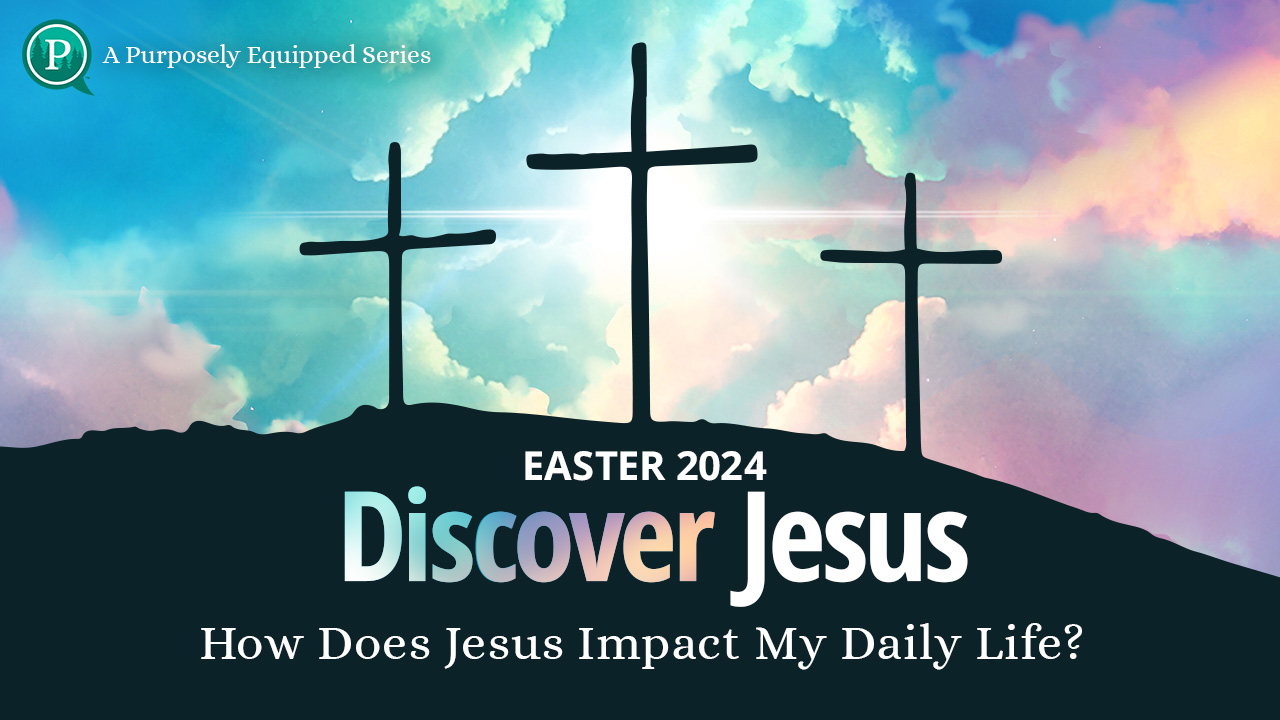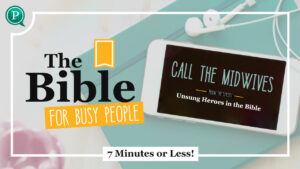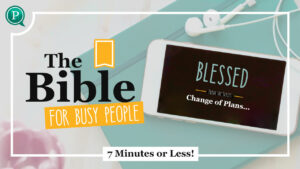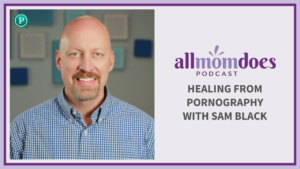Mark Holland and Pastor Riley Taylor of Mountlake Church discuss the impact of Jesus on daily life. They explore the question, “How does Jesus impact my daily life going forward?” Pastor Taylor highlights five ways Jesus impacts daily life with the encouragement of submitting your whole life to Jesus.
Show Notes:
Transcription:
Mark Holland:
“When I consider your heavens, the work of your fingers, the moon and the stars which you have set in place, what is mankind that you are mindful of them, human beings that you care for them?” This excerpt from Psalm eight helps put into perspective how wonderful and mighty God is. There are so many mysteries to uncover about Jesus and how his attributes affect our daily life. On this episode, we will unpack the question, how does Jesus impact my daily life going forward after Easter? With Pastor Riley Taylor of Mountlake Church in Mountlake Terrace.
And time again for another Purposely Equipped discussion, and this Easter season, we are taking kind of a different approach with some questions that aren’t the traditional questions asked during Easter. And this week probably, maybe it would have been the question that people would say now, Easter and the big parade and now what? And that is how does Jesus impact my daily life? What do you do with the story of the resurrection, the Easter season? How does it apply to your life the other 364 days of the year? And to answer this question, help us explore this is one of my favorites, as we’ve started to do these purposely equipped series, Pastor Riley Taylor of Mountlake Church in Mountlake Terrace. Hi there Riley.
Riley Taylor:
How are you, Mark?
Mark Holland:
Good to see you once again.
Riley Taylor:
You said that these are not the normal questions. What would the normal questions be?
Mark Holland:
Well, probably, I always think of maybe something more theological.
Riley Taylor:
Right. Okay.
Mark Holland:
But we’re getting down the rubber meets the road with what we’re discussing this [inaudible 00:01:51]
Riley Taylor:
I know. Thank you for that. Thank you for giving me this one.
Mark Holland:
Because us theologically minded people listen to a lot of teaching podcasts and stuff. We can get a little bit too heavenly minded for our own earthly good sometimes.
Riley Taylor:
That’s true. That’s so true.
Mark Holland:
But you had this question actually come up with you with a parishioner, kind of indirectly. We’ll talk about that here in a moment. Tell us again about Mountlake Church. Used to be Calvary Fellowship.
Riley Taylor:
That’s right.
Mark Holland:
Founded by your dad, Wayne Taylor. A name we know. You’ve taken over. How long have you been a pastor there?
Riley Taylor:
Almost six years.
Mark Holland:
Six years. Okay. And it’s changed to Mountlake Church because you found out dad never even really liked that name.
Riley Taylor:
That’s true. That’s true. That was the great revelation. But there were other things too. We wanted to have the word church in the name. We had several people week one come in and go, “I never knew this was a church.” It’s very practical as well.
Mark Holland:
Just call calling it a fellowship, you’re not sure what that means.
Riley Taylor:
What is a fellowship?
Mark Holland:
Could be an athletic club or something.
Riley Taylor:
Yeah, it sounds like something you’d secure your tenure or whatever. You’re in a university, “And I was finally welcomed into the fellowship at Cambridge.”
Mark Holland:
Right.
Riley Taylor:
Or you’re carrying a ring to Mount Doom or something. “I’m part of the fellowship.”
Mark Holland:
Right. Well, Mountlake Church now is the official title. And you guys, of course, ready for the Easter season.
Riley Taylor:
Yep.
Mark Holland:
And you have been working on a film series that you’re going to be releasing, I guess, here the first week after Easter. Tell us about your parable films.
Riley Taylor:
Yes, we’re calling it Pacific Parable, and we are taking the stories of Jesus, which are the most famous stories in all history. And we’re taking them and we’re setting them in a Pacific Northwest context. We’re not changing them, but we’re deepening them. And the first one we just wrapped up was called the Buried Treasure. You might know that. The kingdom of Heaven is like treasure hidden in a field which a man found. And in his joy he covered it up, which is sketchy behavior. He covered it up, didn’t tell his neighbor he found it. And then sold all that he had in order to purchase that field so he could have the treasure.
And it speaks of the supreme worth and value of the Kingdom of God, that it’s worth giving everything for. So we are telling a story of 1880s pioneers struggling to make things work in the Pacific Northwest during the gold rush. And one of the farmer’s wives stumbles upon buried treasure. And they have to make the decision together whether or not to sell everything in order to purchase that field. So we take Jesus’s story and we try to bring it in front of ourselves in a way that can really connect with our hearts and stimulate our imaginations, and ultimately appreciate Jesus’s words even more.
Mark Holland:
So how will people be able to access this film? You’re talking about maybe being on Amazon Prime or how are you doing that? You’re not sure totally yet or…
Riley Taylor:
We’re not sure totally yet. As of right now, they can go to pacificparable.com and just find out more about it. We are currently working on the script for the sower and the four soils. So that’ll be part two. But as far as availability, we’re showing it at our church, April 7th. I’m going to be showing it at some other churches in the weeks and months after that. And it will probably be on iTunes and Amazon and all those kind of digital retailers for, I don’t know, 3.99 or something like that. It’s a twenty-minute short film, yeah, in the coming weeks and months.
Mark Holland:
Looking forward to it. And that again, where do you get it? What’s the name of the website again? Just to watch the same preview I just saw.
Riley Taylor:
Yeah, pacificparable.com.
Mark Holland:
Pacificparable.com. And I have seen the preview and it looks really good. Looks very… You said it was filmed in the northwest and it looks like it and it’s really exciting. So many different parables that Jesus talked about, and we want to talk in addressing our question this time, how does Jesus impact my daily life? You were having a conversation with somebody at church. How did that go again and what was coming up there?
Riley Taylor:
Well, I think all pastors have this similar conversation, which is the death and resurrection of Jesus. Something that we celebrate, not just every Easter, but really every Sunday, every day. We’re constantly plumbing the depths of its meaning for us. And I think there’s this constant question which is, “What does that have to do with me?” And not in a strictly like “What does the atonement theory of the efficaciousness of Jesus’ blood, did it affect my salvation or all people’s salvation?” Not a theological question. That’s not what I mean. I mean how does it, like you said, impact my daily life?
How do I look at the cross and the resurrection this Easter and see that as something that matters to me Monday, Tuesday, Wednesday, work, family, sex, relationships, play, days off, everything? How does it affect all that? And so of course I get this question, it’s like what did the cross… Was Jesus on the cross thinking about me living my life? Did he care that I’m unhappy? Did he care that I’m depressed? And this person asked, basically said to me, “I don’t think he did. I don’t think Jesus was there on the cross caring whether or not I am full of joy or depressed or anxious.”
Mark Holland:
Or had my best life.
Riley Taylor:
Or had my best life now. And I said, “Are you sure about that?” He was basically saying “Jesus was on the cross to get me into heaven.” And I go, “Okay, that’s a beautiful truth. But you think that’s all Jesus cared about? Well what about everything he taught us? What about having life to the full? What about reconciling with your neighbors? What about love? What about all of his teachings around telling the truth and forgiveness? Is that not to increase the amount of joy and love and happiness in your life?” In fact, the word blessed when Jesus says blessed are the poor in spirit, the word there is [foreign language 00:08:01] which is usually in Greek translated happy or fortunate. He’s saying, “Happy are the poor in spirit in my kingdom, for they have the kingdom of heaven. Even the poor in spirit can be happy in my family.” I want us to put together heaven and earth. You just mentioned earlier about being so heavenly minded you’re of no earthly good. That’s a classic line. I love that line. I love that line.
Mark Holland:
Well, that’s what the world thinks.
Riley Taylor:
Yeah, totally.
Mark Holland:
Think you’re just thinking about the bye and bye, and what about righting social wrongs now? There’s a real push for that, of course.
Riley Taylor:
Yeah. And in John 16, Jesus says, “I’ve told you these things so that your joy may be complete.” And it’s like, I don’t know. I think Jesus, what he did for us matters in our daily life. Absolutely. Absolutely.
Mark Holland:
Well the term came out, I don’t know, it was last 10, 15, 20 years. What would Jesus do? Is that the kind of thing you were talking about? How would Jesus address this issue that’s right before me right now?
Riley Taylor:
I will say that that bracelet, that bumper sticker, WWJD, I remember that. When I was a kid, I had one. When I was a kid it was cool to flip them inside out.
Mark Holland:
Oh, really?
Riley Taylor:
That was the cool thing to do.
Mark Holland:
Flip them inside out?
Riley Taylor:
Yeah. But anyway, what would Jesus do? To me when I think of that, and this could just be me, but when I think of it, I think of almost like those friends that you have where you’re hanging out and that one friend says, “Now guys, are we gossiping right now? What would Jesus do?” And it almost feels like a Jiminy Cricket conscience voice. “I don’t know. What would Jesus do?” And I think that’s part of it. The Holy Spirit is-
Mark Holland:
But that’s okay.
Riley Taylor:
That is okay. You’re right. You’re right. That is okay. But I think that it is better than that. That can come across very negative and undesired as a voice. What it should feel like is what would Jesus do should feel like the most life-giving thing. When I get home from work and I go into my house, what would Jesus do? What would Jesus do? He would love his children if he had kids. And he has us, right? He loves us. What would Jesus do? He would love his bride. Isn’t that what he does? What would Jesus do? He would provide, he would forgive. What would Jesus do is a recipe for the best life ever. Is that best life now? Not quite. And here’s why. Because a lot of teachers and preachers who talk in that language of best life now, be happy, all this stuff-
Mark Holland:
Health and wealth.
Riley Taylor:
Health and wealth, a lot of that kind of teaching ignores the cross because what would Jesus do also means die. It also means give up what you wanted. So the will of God, the joy of living in the way of Jesus is not simply about being happy all the time. It’s also about weeping with those who weep. Picking up your cross daily and dying to yourself. That’s what Jesus would do. And that’s not a negative thing. That is the best thing we can do for those around us.
Mark Holland:
And that’s the answer to a life that is going to have some disappointments.
Riley Taylor:
Absolutely.
Mark Holland:
People who feel like, “Boy, I have disappointment, I have sickness in my family or in my own life. I’m cursed.” Or some of this kind of thinking, they think “I didn’t have enough faith.” That can get into quite a legalistic down spiral and burns people out.
Riley Taylor:
It can. And if you define it as the health and wealth view brand of Christianity, what does that say to the person whose child died? Or the person whose child walked away from the faith? Or for the person who can’t have kids at all? Or the person who suffered a great tragedy? What does it say to them? It discourages them. It confuses them. Because then they go, “I don’t know how my life fits in the teachings and example of Jesus.” I was in a conversation with someone like that recently who said to me, “My wife and I cannot have kids and I just don’t understand why God would allow that.” And I said to him, “I don’t know how to answer what you’re asking, but I can’t stop thinking that God sent his Son to the cross.” Jesus died. We have a God who died.
This past Sunday we had a former Muslim who’s coming to faith in Christ, and he was at our basics class. And he was asking about what’s the difference between Muhammad and Jesus? And I told him “Muhammad was a warrior who killed. Jesus was a savior who was killed.” This is the difference. So to that friend, it’s like, look to Jesus. What did he do? He died. He suffered. He’s there with you. Hebrews so eloquently says that we have a high priest who’s able to empathize with our weaknesses. He gets it, to quote the ad campaign. He gets us. The idea there is that we have to have a view of Jesus in our daily life that makes sense of what this daily life is actually like.
Mark Holland:
How does Jesus impact my daily life? And that is something that we want to be able to take away from this Easter season. I love discussing some of the theological meaning and the truth of the resurrection. Even as a young Christian, you were talking to a Muslim, but the truth of we serve a God who’s risen and still alive, and sitting at the right hand of God, making intercession for us, praying for us right now, that’s a great comfort to know we have that kind of a faith. He’s not just some icon. He said He is the way, the truth and the life. You come to the Father only by me, not other ways. I’m the way. And I like having that kind of solid foundation on which to build life. People who are listening to this and aren’t quite convinced of Christianity and the claims, tell us again why it’s important to know that Jesus can impact our daily life. What should we take away from this discussion?
Riley Taylor:
I made a list. I hope this is okay, Mark.
Mark Holland:
Okay. Lay it on us.
Riley Taylor:
I made a list of A words kind of, what do you call it when it’s a C-
Mark Holland:
An acrostic?
Riley Taylor:
Alliteration.
Mark Holland:
Alliteration.
Riley Taylor:
Yeah. Alliteration. Because… I was meditating on the question, and I thought, in my opinion, impact, that is way too small of a word for what Jesus does. How does Jesus impact me? Oh man, am I that presumptuous to even ask such a question? I mean I get it. It makes sense and it’s a valid question, but it’s a small question. So here’s what I would say. Here’s why it matters. Here are my A words. Access, agenda, attributes, action and authority. The first one is access. Paul says through him we now have access in the same spirit to the same Father. Jesus himself said, until now you have not prayed in my name. Pray that you may… Pray and you may have your prayers answered. John 14 and 16. Access. Jesus, by going to the cross, by rising from the dead, gave us access to God.
All religions, all philosophies talk about some kind of access. How do we get access to God, or you might say the life you want? The way of Jesus is that he made a way. He grants us access. Not that we hacked our way with the spiritual machete through some path. We did not grant ourselves access. Jesus granted us access, which means two things. First, that we have total access to God in Jesus. And then secondly, we have equal access to God with each other. Which means I can’t say, “Oh yeah, I’m better than you, Mark. Look how much access I hacked away for myself.” So access is the first way that he impacts our daily life. Secondly, agenda. Jesus has an agenda for me that is different than my agenda for myself. And there are going to be some things on my agenda that Jesus looks at and goes, “Awesome. Love Brittany, love your kids.
Build a life that is solid and built on the firm foundation of Christ. And love your church. Teach the word.” Right? This is stuff on my agenda. But I got other stuff that’s on my agenda. That’s like be a world-famous filmmaker. I don’t know.
Mark Holland:
That would be on my agenda too.
Riley Taylor:
I don’t know if that’s on Jesus’s agenda.
Mark Holland:
Dreams.
Riley Taylor:
And you know what? His agenda is better than my dreams. His agenda is better than my dreams. He knows what I need better than I do. So how does he impact my daily life? One of the ways is that I submit my agenda to his and I say, “Not my will, but yours be done.” So yeah, access, agenda. Attributes has to do with his character. The attributes of Jesus. Sometimes we might point to the fruits of the spirit and say, “That’s absolutely the attributes of Jesus.” He was loving, joyful, love, joy, peace, patience, kindness, goodness, gentleness, self-control. He had all those attributes. And so I have to as well.
Mark Holland:
But we have to develop that there is some partnership that we have to develop ourselves.
Riley Taylor:
Exactly. So the attributes are not just a list that I just grit my teeth and try my hardest. It’s something that Jesus, through his Holy Spirit, develops in me. You’re absolutely right. So for example, Riley is not a gentle person. Riley’s actually pretty hardheaded. I bulldoze over people, specifically my wife sometimes. And so learning to have Jesus’s attributes means that I have to learn how to cultivate gentleness, how to apologize for my sin, how to repent of my sin, how to confess my sin. So his attributes absolutely impact my daily life. And anytime I’m outside of that, I need to be open to being called out, to repenting, and to returning to the attributes of Jesus.
So looking within our own lives and seeing that character being formed is really crucial. The next one is action. And this refers to the power of Jesus in my daily life. Jesus, the Bible tells us, is present with us by his Holy Spirit, empowering us, speaking to us, guiding us. And so in prayer and in the presence of God, Jesus can take action for me. I can face a great challenge in life for which I have no solution. And then I can commit that to Jesus in prayer and say, “You take action.” Or I can face a problem with a person, like a friendship is deteriorating or there’s a disagreement or a fight. And I can say, “God, I don’t know what to do with this person. Will you take action?” And that’s what the Psalms are. The Psalms are all about, “I don’t know what to do, God, would you take action for me?”
So I’m relinquishing control and saying, “You are the one I’m going to wait for to take action on my behalf.” And then the last A word that I got for you is authority. Authority. And this is why I think impact is too small of a word, because according to the scriptures, Jesus is king of kings. By him the world was made. So he doesn’t just impact my life like some kind of, I don’t know, ad campaign or motivational speaker. He is directly in charge of my life. He has authority, right? The Greek words for this would be exousia, which means authority or power or dominion over me. And then Basilia, which is where we get the word Basilica, and that’s the word for kingdom. He’s the king. And so he has complete and total charge of me. Which I think for a lot of people that’s scary, isn’t it?
They might have trust issues. They might have had bad experiences with authority figures. And so for that person, the way Jesus is going to impact you is he’s going to show you that not all authority is bad. Not all people in charge are abusive. Not all kings are tyrants. Not all fathers are untrustworthy. Jesus is the good king, who not only made you but loves you. And who not only wants something better for you and directs you and corrects you and rebukes you even. Not only all that, he died for you. We have a king who is crowned with thorns. We have a king whose throne was a cross. That is an authority in my life that I am absolutely willing to bow to.
Mark Holland:
Yeah, it’s always impressive when you meet somebody who has a sense of that, that God’s in control. Even Jesus as he faced his accusers, “Don’t you realize I have the power to let you go?” And Jesus just humbly said back, “You don’t have any authority except what God has given you.”
Riley Taylor:
Right.
Mark Holland:
And he seemed to be okay with that. And when we can grab a hold of that, that does bring a lot of peace in the midst of otherwise disappointing circumstances.
Riley Taylor:
So true. Yeah.
Mark Holland:
Okay. Well, how does Jesus impact my life? We were talking with Riley Taylor of Mountlake Church in Mountlake Terrace. And why don’t you pray for people who are struggling with this. How does Jesus impact my life? People who want to apply the truths of the Easter season all year round, pray for those people.
Riley Taylor:
I’m happy to. God we come to you in the name of Jesus, through whom we know we have access. And I want to submit to you our agenda, our hopes and dreams. Not that those are bad or wrong, but because they’re from us, they’re not always well-informed. You know what we need and what we want. And I want to bring that to you and ask your agenda, your will, not my will, be done. And we’re asking also that you would take action, that you would keep forming us and discipling us with your attributes, and that your authority would prove so good to us.
And I want to lift up those listening right now who struggle with these things, or who still have that disconnect between “Jesus rose from the dead, well, now what?” And I want to ask that you would take action on this, that you would show yourself good to them, that you’ll reveal your will for their life. That you would just show yourself present, listening and the good shepherd of their weary, tired souls. So God, we commit them to you. And I pray that what was separated would be brought back together, what is broken through mistrust would be healed, and that you would just rope them into your amazing, good and gracious will.
Mark Holland:
Amen. Thank you so much for listening to Purposely Equipped. We hope that you gain a deeper understanding and discover who Jesus is this Easter season, and invite a friend to listen to. We’d love you to leave a review so more people can find this podcast special. Thanks again to our guest pastor, Riley Taylor of Mountlake Church in Mountlake Terrace.







